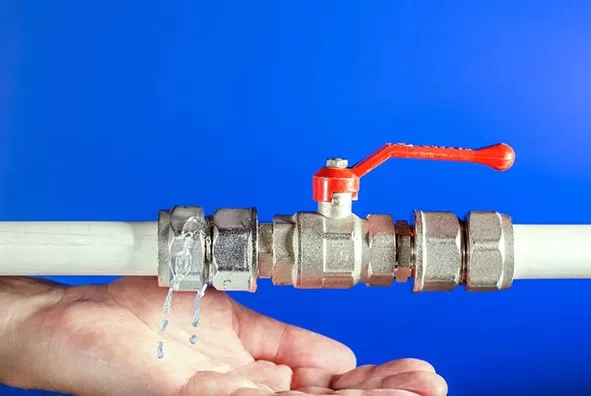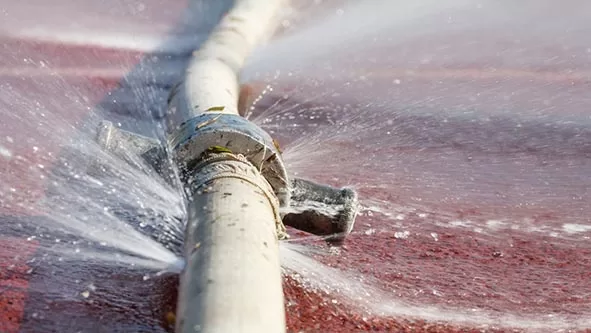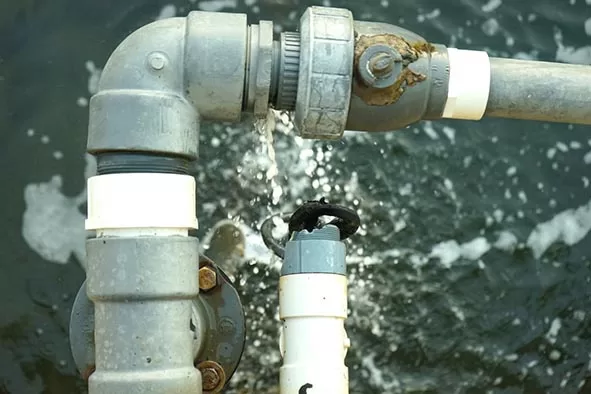It’s common for many clients to want to save money regarding their renovations. But when should you push your clients to consider checking their plumbing before the job starts?
In this guest post, Optimised Plumbing Services discovers why checking pipes and drains before any renovation could end up saving building owners thousands and ultimately putting a drain on their renovation project.
There is no way to know with the naked eye if everything is in order when it comes to pipes and drains. Building owners will often not alert you to a problem that could ruin your hard work with an immaculate renovation literally crumbling underneath. Calling in a plumbing professional is always advisable before any renovation that could affect pipework.
“We had one instance when a professional builder began demolition of the downstairs bathroom, during the work, the bathroom upstairs was only being used, ” says Joseph Lahoud, Director of Optimised Plumbing Services. “Unknown to the builder, the lower pipes were blocked from pre-existing issues, and the pipes on the lower ground were slightly damaged during renovations. Unfortunately, the water flowed down and into the walls. This caused overnight flooding downstairs, which ruined the carpet in other rooms. A devastating, yet avoidable situation, for the builder and homeowner.”

Tips For Building & Construction Professionals
- Hire a professional plumber to inspect the building’s drains thoroughly. Expert plumbers have the necessary knowledge and tools to identify any existing issues. This early expense could reduce the risk of significant plumbing issues during the renovations, which could ultimately blow a budget for the owner.
- Check for any signs of water damage or leaks around the drains or plumbing fixtures, this could indicate a blockage. Also, ask the homeowner if they have experienced any issues with their drains and plumbing. This could indicate a problem that perhaps has been ignored for many years. Making this standard practice can ensure the project you are starting goes to plan.
- Check the sewer line for any signs of damage or blockages. A video inspection can help identify any issues with the sewer line that may not be visible to the naked eye.
- Ensure the plumbing system is up to code and meets all relevant regulations and standards. This is important for the safety and health of the occupants of the building, as well as to avoid any potential legal or financial issues.
 If There Is A Leak?
If There Is A Leak?
If you discover a possible leak or a pipe problem, the good news is the building owner or homeowner has many options for repair that can save their renovation/building budget.
Resealing can help to repair existing leaks in drains or pipes. This can save builders the cost of replacing entire sections of plumbing. Resealing is often less expensive than replacing pipes or drains and can help to extend the life of the existing plumbing system.
Resealing pipes can also help prevent further damage to the plumbing system by sealing cracks, gaps, and other pipe defects. This can help to avoid more costly repairs down the line and can help to extend the life of the plumbing system, the renovation, or the construction.
This practice also can be done without the need for excavation, which can save professional builders time and money. Traditional methods of repairing or replacing plumbing often require digging up the pipes, which can be costly and time-consuming for all involved.
 Questions To Ask Building Owners
Questions To Ask Building Owners
Sometimes the building owner cannot understand the seriousness of a slight inconvenience regarding their plumbing. Having a list of questions is a good idea to assess if the pipework in the building or home you are renovating is not showing signs of stress. The top five questions to ask include:
- Do you notice any problems with your plumbing? Foul smells, overflowing, slow draining, or gurgling sounds after flushing or water draining from sinks, etc.?
- Have you tried unblocking any drains lately or used over-the-counter drain cleaning products?
- Have you had any plumbing issues in the past?
- Do you have drains outside that commonly become blocked after a downpouring of rain?
- Do you have any indication of leaking or broken pipes? Mouldy patches on walls or carpets? Or lush green patches of grass even after a dry spell?
If you suspect the drains will put a drain on your project, it’s highly advisable to call in the experts for a thorough check before the renovation begins. This could save the homeowner money, stress, and time regarding their dream renovation, and ensure your high-quality work is not impeded with an unforeseen problem.
For more information, visit optimisedplumbingservices.com.au


































